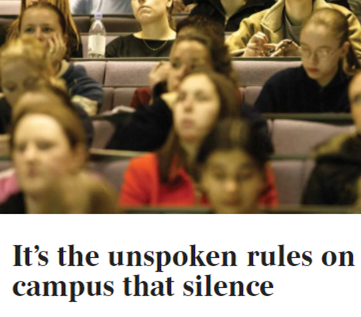"So, we seem to be at an impasse over what poses the greater risk to the study of the human mind: gender bias or feminist bias. These two perspectives might seem poles apart, but they have something fundamental in common. They’re both concerned about threats to scientific objectivity – the principle that, as much as possible, science should remain untarnished by politics, cultural bias, interests or preferences. This commonality is good news." - Aeon
Here you will find selected works by Cordelia Fine exploring the relations between science and political values. University of Melbourne students can also check out the subject Sex & Gender in the Sciences.
Cordelia has spoken on this topic at a range of events, including The Andrew Carnegie Lecture @ Glasgow University, The Bernal Lecture @ Birkbeck College London, International Academy of Sex Research (keynote), and forthcoming in the Moffett Lecture in Ethics @ Princeton University and the Center for Philosophy of Science @Pittsburgh University.
She has also been a signatory on letters in support of academic freedom in philosophy including in support of Professor Kathleen Stock, formerly at Sussex University (including this one) and in support of Associate Professor Holly Lawford-Smith, University of Melbourne.
New:
Fine, C (March 17, 2023). Builwww.the-tls.co.uk/articles/time-to-think-tavistock-clinic-hannah-barnes-book-review-cordelia-fine/ding on sands of ignorance: How the Tavistock Trust's gender identity clinic failed its patients. [Book review of Hannah Barnes's "Time to Think: The Inside Story of the Collapse of the Tavistock's Gender Service for Children, Swift.] Times Literary Supplement.
Here you will find selected works by Cordelia Fine exploring the relations between science and political values. University of Melbourne students can also check out the subject Sex & Gender in the Sciences.
Cordelia has spoken on this topic at a range of events, including The Andrew Carnegie Lecture @ Glasgow University, The Bernal Lecture @ Birkbeck College London, International Academy of Sex Research (keynote), and forthcoming in the Moffett Lecture in Ethics @ Princeton University and the Center for Philosophy of Science @Pittsburgh University.
She has also been a signatory on letters in support of academic freedom in philosophy including in support of Professor Kathleen Stock, formerly at Sussex University (including this one) and in support of Associate Professor Holly Lawford-Smith, University of Melbourne.
New:
Fine, C (March 17, 2023). Builwww.the-tls.co.uk/articles/time-to-think-tavistock-clinic-hannah-barnes-book-review-cordelia-fine/ding on sands of ignorance: How the Tavistock Trust's gender identity clinic failed its patients. [Book review of Hannah Barnes's "Time to Think: The Inside Story of the Collapse of the Tavistock's Gender Service for Children, Swift.] Times Literary Supplement.
|
Fairly Criticized or Politicized: Conflicts in the Neuroscience of Sex Differences in the Human Brain (forthcoming in M Breedlove & C Jordan [Eds] edited volume on sex differences in the brain, Cold Spring Harbor Laboratory press).
|
|



